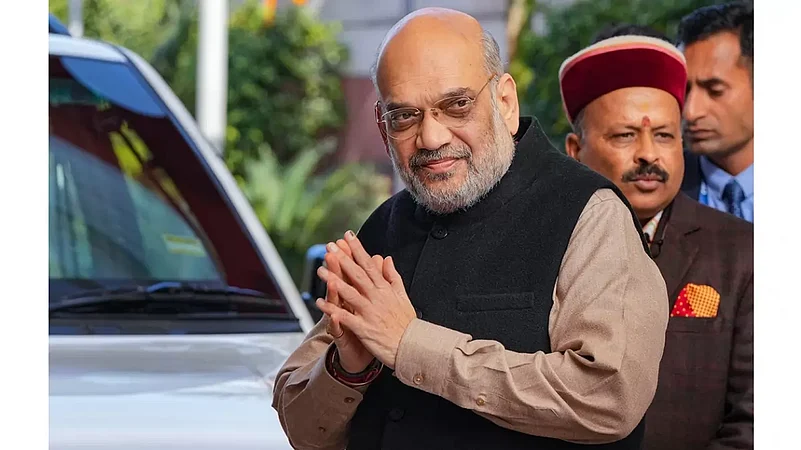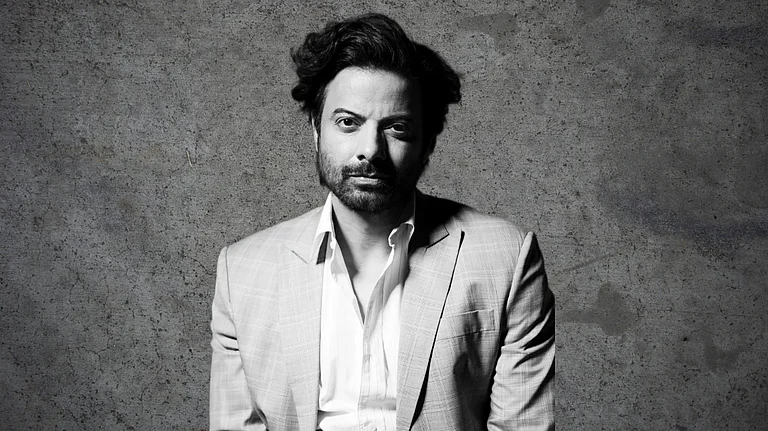Union Home Minister Amit Shah has said the current logjam in Parliament can be resolved if the Opposition comes forward for talks and that the government will go "two steps ahead" if it takes "two steps forward".
Participating in the India Today Conclave on Friday, Shah also said there are certain issues which are above politics and even former prime minister Indira Gandhi had refused to discuss domestic politics in a foreign land. "Let the two sides sit before the Speaker and discuss. They should come two steps forward and we will go two steps ahead. Then Parliament will start running. But you just hold a press conference and do nothing, it can't be like that," he said.
The home minister said a parliamentary system can't run with only the treasury or only the Opposition as both have to talk to each other. "Despite our initiative, there has been no proposal for talks from the Opposition. So whom will we talk to? They are talking to the media. They created a slogan that there should be freedom of speech in Parliament. There is complete freedom of speech in Parliament. No one can stop you from talking," he said. However, Shah said, everyone has to follow rules and there can't be freestyle and everyone should have to study the rules and understand them.
He said, "The debates in Parliament take place as per rules. You can't talk in Parliament like one can do on the road. If they don't have this basic concept, what can we do?" The home minister said Parliament functions under certain rules and those rules were not framed by the present government.
"These rules have existed even during the times of their grandmother or father. They were taking part in a debate with these rules, we are also participating as per these rules."They have no idea about the rules and then allege that they are not being allowed to speak. This is not acceptable. No one can just stand up and start speaking. There are rules and you have to follow those rules. There are no changes in these rules," he said.
Citing two instances, Shah said Indira Gandhi had visited England after the Emergency and at that time the Shah Commission was constituted and there were attempts to put her in jail. "On that, some journalist had asked her (in England) how is your country doing. She said we have some issues but I don't want to say anything here. My country is running well. I won't say anything about my country. Here I am an Indian," he said quoting Indira Gandhi.
The home minister said former prime minister Atal Bihari Vajpayee was in the Opposition and there was supposed to be a discussion on Kashmir at the United Nations. He said a Congress government was in power at that time and that was for the first and last time that the Indian delegation was led by an opposition leader, Vajpayee because it was a discussion on Kashmir.
"This trust... there are some issues that are about politics. I believe that everyone should follow this tradition. "Should we go abroad and level allegations about India and should we go to the Parliament of other countries and make comments about India? I believe the Congress will have to answer this," he said.
The first week of the second half of Parliament's Budget session has been completely disrupted following protests by members of both ruling and opposition parties. While the BJP has been demanding an apology from Congress leader Rahul Gandhi over his remarks in London, the Opposition has been demanding a Joint Parliamentary Committee (JPC) probe into the Adani issue.
During his interactions in London, Rahul Gandhi alleged that the structures of Indian democracy are under attack and there is a "full-scale assault" on the country's institutions. The remarks triggered a political slugfest, with the BJP accusing him of maligning India on foreign soil and seeking foreign interventions, and the Congress hitting back at the ruling party by citing previous instances of Prime Minister Narendra Modi raising internal politics abroad.


























